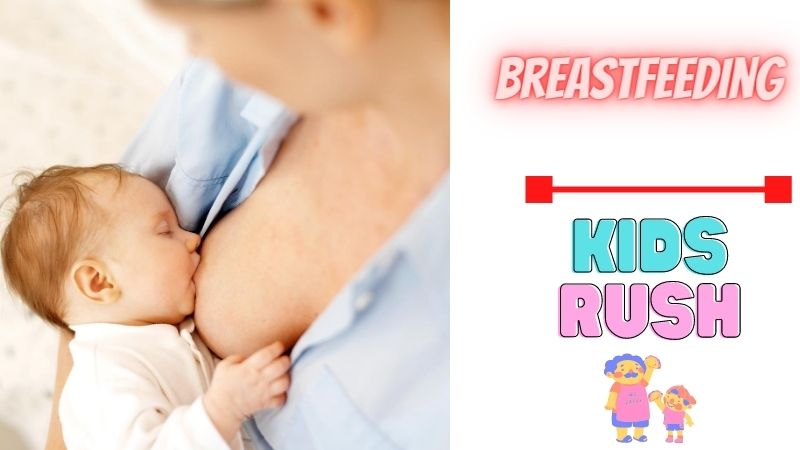What is the newborn’s immune system like?
Have you ever wondered what a newborn’s immune system looks like? This has an innate component, and another acquired one that requires exposure to microbes and helps the mother to develop.
The immune system is an excellent biological barrier, as it protects the body from various pathologies, regardless of the pathogens that cause them. Although there are components of this mechanism that are integrated from the birth of the human being, many others are perfected based on trial and error.
Do you know what the newborn’s immune system like? Do you know the types of immunity that exist? If you have wondered what role this physiological barrier plays in the well-being of babies, here are the answers.
About the immune system

According to the book ” immune system “, a definition that broadly encompasses the importance of the immune system is as follows:
“ A set of biological structures and processes within an organism that allow it to maintain homeostasis or internal balance against external aggressions, whether of a biological nature (pathogens) or physicochemical (such as pollutants or radiation), and internal (for example, cancer cells). “
In general, these mechanisms are conditioned by many factors, some intrinsic to the human being, such as age, associated diseases, etcetera; and other extrinsic ones, such as the temperature or the geographical location of the individual.
Read Also: Effects of mobile phones and tablets on the brain
Are there different types of immune systems?
Entering the subject, to understand the defense mechanism of the newborn, it is necessary to clarify that there are two types of immunity in humans.
Innate immunity
Innate immunity is a component of defense mechanisms that every person has from birth. It is responsible for attacking all pathogens indistinctly. It is not a specific mechanism, so it acts in a general way and does not grant the host long-term immunity.
Inflammation or coughing are clear examples of this since they occur independently of the pathogen. This is why newborns come into the world with this immunity already built-in.
Read Also: Probiotics for babies
Acquired immunity
It is made up of specific cells and systems, with the sole mission of killing off pathogens. Antibodies come into play here, recognizing the threat, destroying it, and creating long-term tolerance to it.
This mechanism is perfected based on exposure to threats; therefore, babies are much less sophisticated than an adult individual.
What is the newborn’s immune system like?
As we have seen, the neonate will present a relatively effective pre-established innate immunity, and an acquired one that requires a lot of practice and exposure to achieve adequate function.
Scientific articles indicate that, during life inside the maternal womb, the fetus is protected by the mother’s immune system, so it does not need an operative one for itself. Still, this statement has certain nuances.
Read Also: Newborn skincare: How to treat it?
Life inside the womb
The fetus develops in a sterile environment, but not exempt from exposures of microorganisms in an exceptional way since some can reach the internal environment during gestation. This is very important since this is how certain episodes begin that promote acquired immunity before the newborn reaches a world full of germs.
The innate system develops with the growth of the baby, but the mother also provides her blood immunoglobulins that, through complex mechanisms, reach the fetus. It can be concluded that the newborn’s immune system is the product of two factors:
- The maturation of the organs responsible for generating responses, such as the liver, thymus, and spleen.
- Maternal transmission of immune components that prepare you for departure to the outside world.
Thus, once the newborn arrives in the world, it has a complete but immature immune system. Because of this, the first months of life are crucial for the survival of the baby, and therefore, in low-income countries, the mortality rate can be as high as 200 deaths per 1,000 newborns.
Life outside the womb and the importance of milk
The baby cannot face alone the challenge of dealing with an infinity of microorganisms at once. For this reason, breast milk is essential for your health, since this liquid contains antibodies and cells from the mother.
Scientific review articles calculate that in colostrum, the milk that is produced in the early stages, 3 x 10 ^ 6 leukocytes are transmitted per mL of milk, cells that are very important for the immune response. T lymphocytes and B lymphocytes are also supplied.
Thus, milk could be considered the first transfer of passive extrauterine immunity in the newborn. These components give the baby a greater resistance to respiratory and digestive diseases.
What to remember about the newborn’s immune system?
As we have seen, the baby requires exposure to various microorganisms to develop its acquired immunity, but it is not completely unprotected. The baby is born with a developed innate system, and the mother helps him, both in the womb and with breast milk, to perfect his immune responses during the first months of life.
Before finishing, it is necessary to make a special mention of vaccines. These are necessary for the baby’s acquired immune system to learn to identify pathogens and to destroy them safely.

